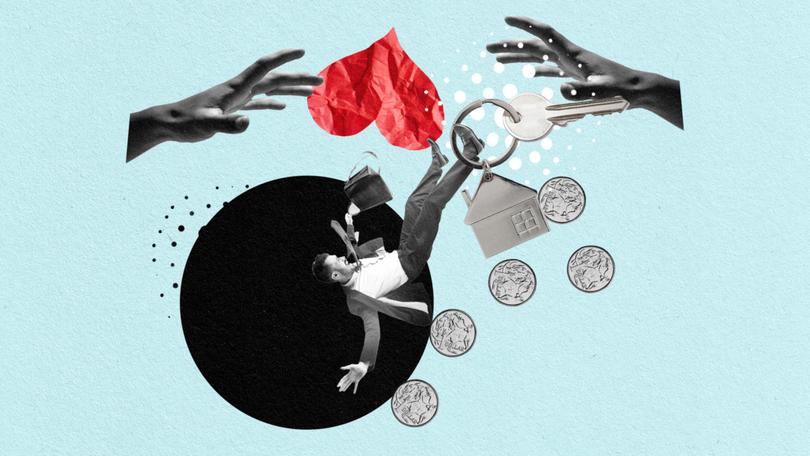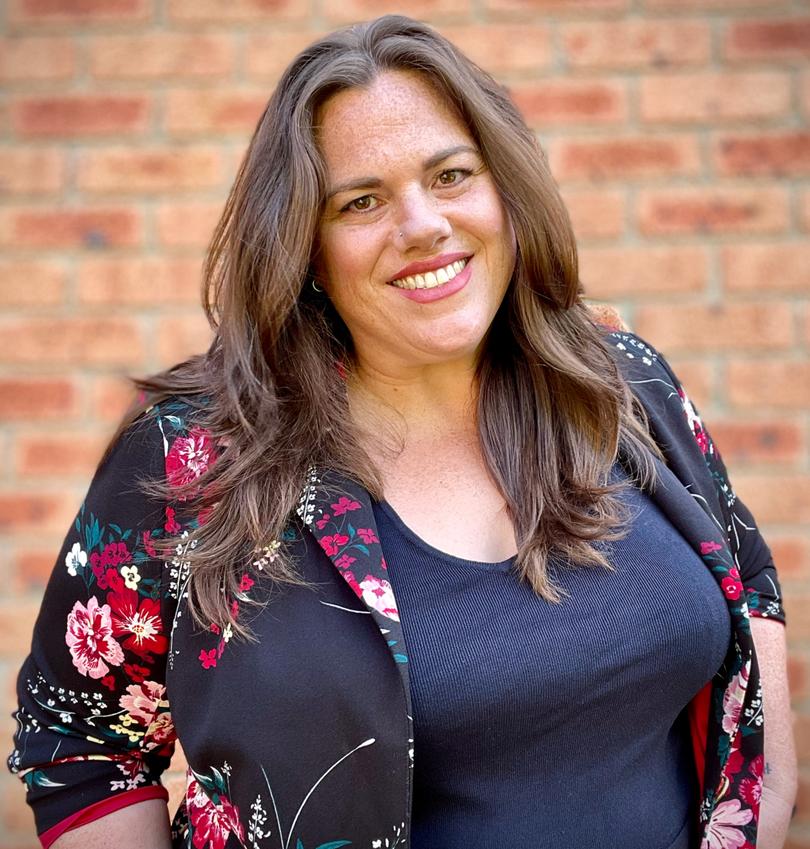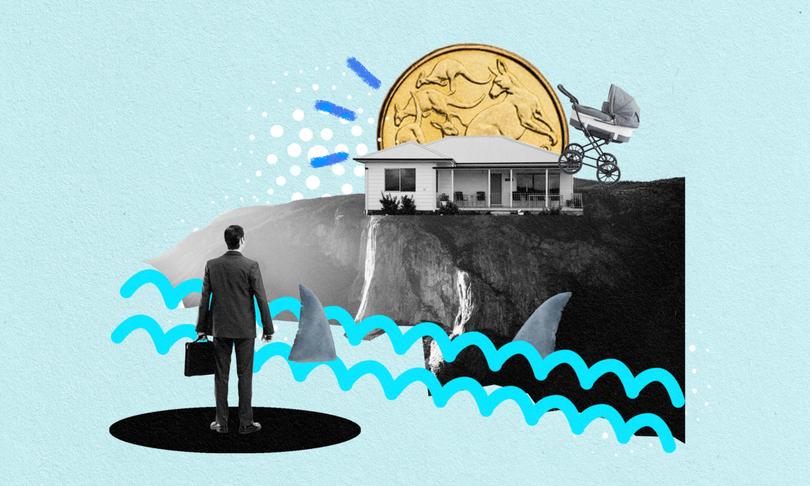THE LIMBO GENERATION: Millennials told it’s ‘okay to be angry’ as they fall behind in achieving milestones
Policy failures in key areas have resulted in millennials achieving life goals up to 20 years later than previous generations with calls for the Government to support a generation at ‘breaking point’.

Younger millennials may as well “throw out the bucket list” of what they expect to achieve by their 40th as experts urge the Government to fund four key policy areas to support a generation at “breaking point”.
Leading demographer Liz Allen says Australians in their late 30s and early 40s are facing a “crisis clusterf...” due to policy failures in key areas which have resulted in millennials achieving life goals up to 20 years later than previous generations.
The national median age is currently 38 years old, firmly in the millennial age bracket of 28 to 43 this year.
Sign up to The Nightly's newsletters.
Get the first look at the digital newspaper, curated daily stories and breaking headlines delivered to your inbox.
By continuing you agree to our Terms and Privacy Policy.In part two of The Nightly’s Limbo Generation series about the issues facing Australians in this cohort, Dr Allen said millennials have a right to be angry and demand change from our country’s out-of-touch “political elite”.
“What we’ve got now is a crisis clusterf... of housing affordability, economic insecurity, gender inequality and climate boiling,” she said.
“Historically, if we think about the parents and grandparents of millennials, their trajectories through life would have been very different, and the order of major life milestones would have been very different.
“When we look at this window of late 30s to early 40s, we’re essentially seeing now, this age group (striving for) what was just one or two generations ago, the business of early 20s.”
Dr Allen, from the Australian National University in Canberra, said youth is becoming increasingly protracted because millennials are achieving the milestones that allow them to leave the nest – that is, family home – much later than expected.
But the 44-year-old, who has been named among the top five Humanities and Social Sciences academics in Australia, argues this is not millennials’ fault.
“Let’s be very, very clear, this is not a failure to launch,” she said.
“This is not a stunted adulthood.
“This is not an issue around immaturity, but rather structural factors at play that have essentially caused great economic and social upheaval that results in significant insecurity and grave fears for an uncertain future.”

Millennials are in a period of “peak stress” where they are juggling parenting, caring for ageing parents and insecure employment amid a housing crisis.
“So we’re talking about part time, under-employment and about wages and contract requirements of employment that are really precarious,” Dr Allen said.
“That filters through to a feeling of grave uncertainty at the grocery store, when paying bills and the like.
“We’ve got this really pressured, under-the-pump feeling of, ‘how do we survive?’ Millennials are in survival mode and often living pay check to pay check.”
Dr Allen’s book, The Future of Us, is a call to action to build a stronger Australia through fairness and equality.
But the working mum said the plight of millennial women is anything but fair due the financial pressure to maintain a career and home while raising small children.
“They are having and raising the kids, doing the paid work, often caring for ageing parents and just trying to survive so we have these people who are burned out even before they’ve hit mid-career,” she said.
In fact, many women in this demographic – also known as Generation Y – are burnt out by 9am each day.
“That’s it. Nobody gets it. For mothers, the day starts the night before,” Dr Allen said.
“By the time you’ve navigated school drop-off, you think, ‘How can I now do a day of work?’.
“No policy maker is seriously thinking about the fact that we’ve got all of these workers across the country who are the main breadwinners of the Australian economy, if you like, going ‘I can’t cope. I’m at a breaking point’.”
Archaic school hours only make the working-parent juggle less manageable.
“We’ve got an outdated model of school hours, of parenting roles, of policies and workplace practices that totally do not get what life is like for people, especially parents,” Dr Allen said.
“Don’t even get me started on the preschool schedule that is three days one week and two days the next.
“We’re going, ‘Hey millennials, we’ve got this really great scheme whereby we’re going to let you live in a 1950s model of family, but you’ve got to deal with the realities of contemporary life’.”
She likens contemporary Australia to a hexagonal peg getting hammered into “some kind of weird triangle of the 1950s”.
“We then have this set of circumstances where you basically have to fit an eight or nine-hour workday into that small window between school drop-off and school pick up,” she said.
“More and more we’re seeing parents squeeze a full day of work into (school) hours.
“We have all of these workplace norms that are totally unrealistic.
“Parents are living in a state of fear and stress. They’re running to stand still, surviving and not thriving.”
While there are no fixes in sight, a “good start” would be “bringing the education system” into the 21st century.
“People say things like, well, just wait till the kids are at school, things will get better. Wait till the kids are in high school, things will get better. Wait till the kids leave home, things will be better. So we have to wait until we’re retired for things to be better?
“There’s no better time than now to fix this so that we can have parents not constantly in a state of harried-ness or peak stress and fear about how they’re going to give their kids a good quality of life.”
Dr Allen believes housing security is the bedrock of individual and family wellbeing.
“That means security of tenure, no matter whether you’re renting or have home ownership,” she said.
“And by the way, it is not selfish to dream of housing security for you and your children.
Housing is a human right. It is not an investment portfolio.”
But for renters – especially those with kids – the “Great Australian Dream” is slipping further out of reach and life for those with their own home can feel like a house of cards due to mortgage stress.

“In times gone by, we would say, well, at least you have the house or at least you’re paying off the house,” Dr Allen said.
“As the kids get older and your incomes perhaps increase and you’re able to dedicate more hours to the paid labour force then, then maybe things start to ease, but a lot of people haven’t even gone into the home ownership track yet.
“People at median age now are going to come out to a retirement where they don’t own their home, a retirement where they may not even be able to afford housing.
“It’s going to be like a tsunami of generations who are empty-nester renters.”
Dr Allen said the Australian government has done “little to nothing over time” to relieve the stressors millennials face.
“This is reflected by this kind of political elite who just don’t get it. They’ve got a privileged life and a lot of them are career politicians,” she said.
“They have no idea of what it’s like, and in many cases, they have a wife they can rely on.
“Actually do something substantive and that starts with the recognition that contemporary Australia is not like the 1950s model of family, housing, economic well-being and so on.”
Dr Allen believes the government should be doing significantly more to support millennials through funding “these big four pillars of policy”.
“The great poet Beyonce says if you value something, you put a ring on it… Well, governments, if you value something, fund it like you mean it,” she said.
“If you are serious about the future of Australia, invest in it.
“Invest in the people that are funding the government’s bottom line – the individual taxpayers and young people – who are at the coal face of Australia’s future.
“I think the reality is it’s not good to be under 50 at this point, especially if you don’t have housing security.”
In the meantime, Dr Allen has some advice for those pushing 40 and struggling to survive as they head into 2025.
“Throw out the bucket list. Get rid of that ingrained notion of what the major milestones need to be,” she said.
“It’s okay to be angry. Be constructively angry and demand change. Demand something better.”

